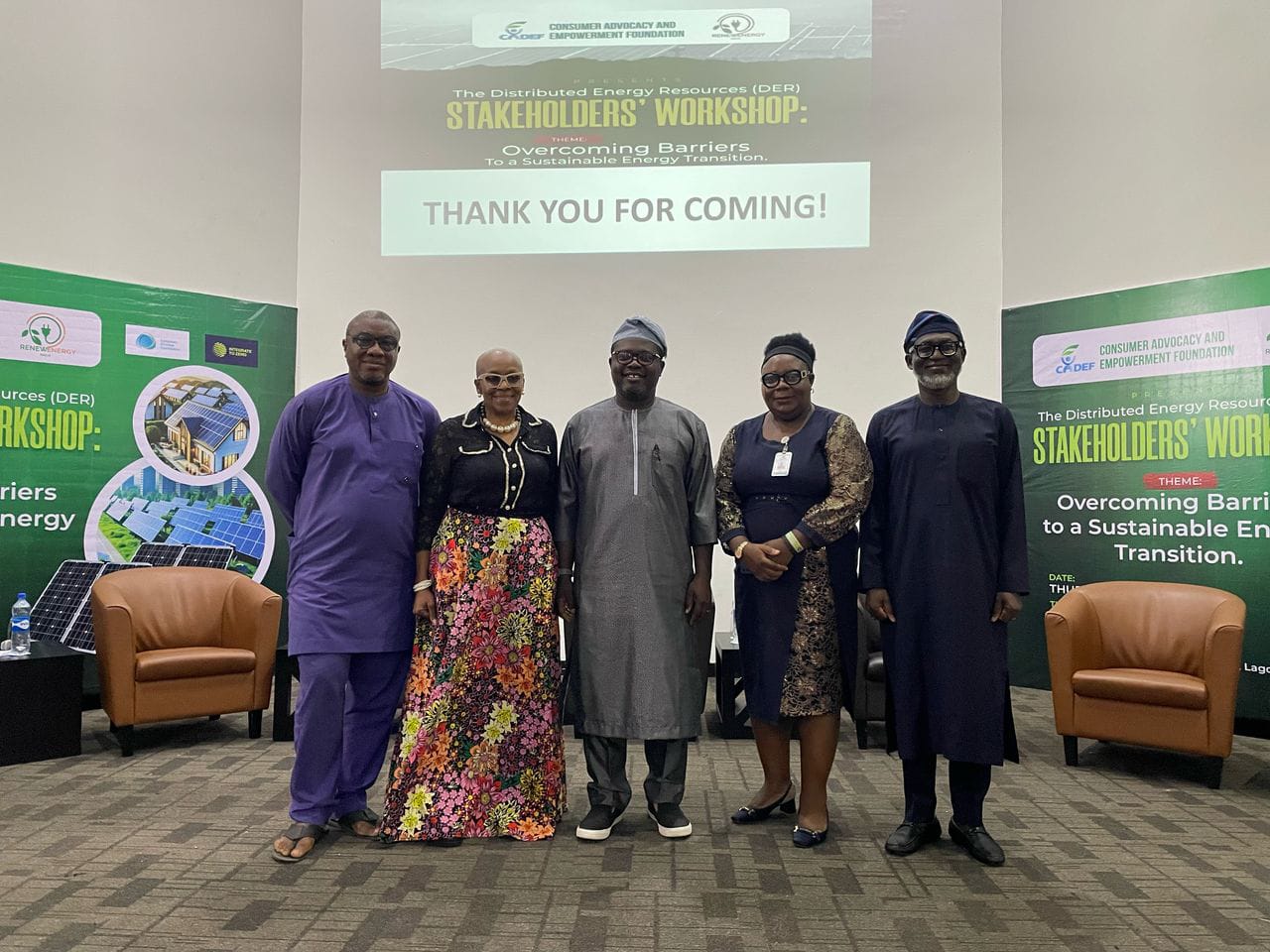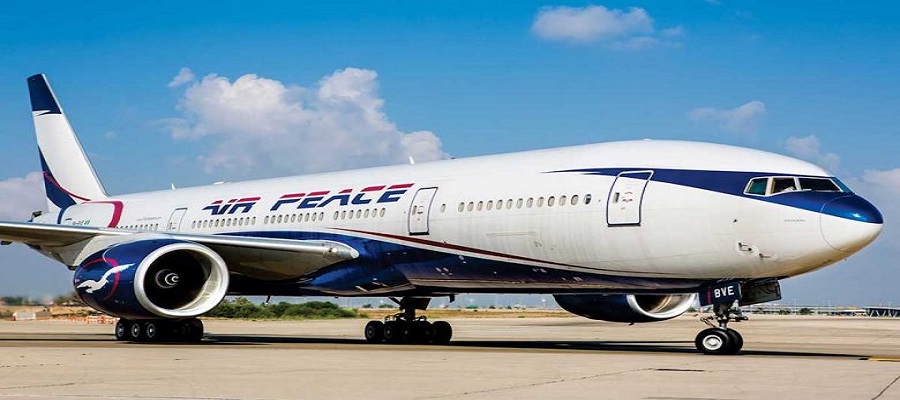This is contained in a statement signed by Dr Ejike Ndiulo, head of Corporate Communications, Air Peace, on Wednesday in Lagos.
According to Ndiulo, the decision is necessary because NiMet is the agency responsible for issuing CNH (Current Nowcast of Hazardous Weather) reports, critical for safe landings, especially during this season of heavy rainfall and thunderstorms.
He said without these reports from the control tower, flight safety could not be guaranteed.
“As a safety-first airline, we have chosen to act responsibly by suspending operations until NiMet resumes full service.
“We understand this may cause inconvenience, and we sincerely apologise. Passengers will be contacted with updates and options for rescheduling,” he said.
The staff of NiMET on Tuesday commenced an indefinite strike over the condition of service and other demands.
News
Muslim Group Reacts to Suit to Remove Arabic from Naira

Muslim Rights Concern (MURIC), Nigerian Islamic human rights organization, has described the suit challenging the Arabic inscription on the Nigerian currency (naira) as acrobatic religiosity.

MURIC made the assertion on Monday while responding to a suit filed by Malcolm Omirhobo, a Lagos-based lawyer.
Prof. Ishaq Akintola, director and founder, MURIC in a statement, said that “Omirhobo’s approach is not only naive, it is pedestrian and kindergarten. This suit against Arabic on naira manifests acute desertification of religious tolerance, exhibition of undiluted acrobatic religiosity, NAFDAC-registered gymnastic spirituality and Oxford cum Harvard-certificated ignorance”
Omirhobo had argued that the Arabic inscription on naira notes portray Nigeria as an Islamic state contrary to the country’s constitutional status of a secular state.
The lawyer also filed a similar suit against the Nigerian Army seeking the removal of Arabic inscriptions from its logo.
The cases are being heard before Justice Mohammed Liman at the Lagos High Court.
But according to MURIC: “How many times do we need to tell our Christian neighbours that Nigeria is not a secular but a multi-religious state. A secular state is one that does not recognise religion as in communist states. But Nigeria recognises all the religions in the country and the Constitution also begins with the words ‘under God’. Secular states do not recognise the existence of God.
“The Constitution of the Federal Republic of Nigeria 1999 says inter alia at its very beginning, ‘We the people of the Federal Republic of Nigeria: having firmly and solemnly resolved : to live in unity and harmony as one indivisible and indissoluble sovereign Nation under God…’ So how can Nigeria be a secular state when we are ‘under God’? In addition, nowhere in the whole constitution was the word ‘secular’ ever used and we challenge anyone who can find that word from the constitution to mention the chapter, section and sub-section.
“Seeking to remove Arabic from the naira is the height of ignorance because Arabic is just a language like English or French, not a religion. By the way, what is on the naira is not even Arabic. It is ‘Ajami’ using Arabic letters as a form of transliteration. Even if Omirhobo single-handedly succeeds in removing Arabic from the naira, is he going to remove the numerals 5, 10, 100, 1000 indicating the denominations as well? If he cannot, then he still has a long way to go because even those numbers are Arabic.
“The numerical system (1, 2, 3, 4, etc) were invented by a Muslim mathematician by name Alkhawarizmi (died 850) in the 9th century. Nay and more than that. Whereas ancient Greeks had men like Plato, Aristotle, Euclide, Thales, Theodocius, etc whose scientific theories only managed to survive their times and Europe boasts today of scholars like Nicholas Copernicus, Francis Bacon, Galileo Galilei, Rene Descartes and Isaac Newton with their moribund and Godless postulates, the list of renowned Muslim scientists is endless.
“The truth is that religious fanatics have grown paranoia about Islam and they arrogate the Arabic language to the religion alone whereas this is not true. Their hatred for Islam and the Muslims is transferred to the Arabic language. This transferred aggression beclouded their perspicacity to the extent that they fail to realize that Islam is not synonymous with Arabic language.
“For instance, Israel’s currency has Arabic inscription on it. Nigerian Christians who go on pilgrimage to Jerusalem every year spend Israel’s money and see Arabic on it. Did they tear it into pieces in anger? They did not ask the Israeli authorities to remove the Arabic on their currency but when they return to Nigeria they maintain their hardline opposition to Arabic on naira. Where is objectivity? Is this not articulated religiosity?
“Again, hardly would any imported electronic gadget enter Nigeria without its manual containing an Arabic section. That is business sense, not religion. But Muslim-haters are swayed by emotion and they cannot separate the wheat from the chaff. Common sense is not so common. Of course there are still Christians who are moderate, liberal and realistic. They are the few exceptions who will not allow themselves to be led by the nose.
“One major argument against the removal of Arabic from the naira is that a large percentage of the Nigerian population will be cut off from our monetary system if Arabic is removed from the naira because Arabic is one of the local languages in Nigeria. It is used by the Shuwa Arabs in Borno State. Therefore Arabic cannot be a foreign language.
“Furthermore, the Bible used by Christians in Israel, Egypt, Palestine, Libya, Syria and other Arab countries are printed in Arabic language only because that is the only language they understand. Does that make the Bible an Islamic Bible? Their church services are conducted in Arabic. Have those churches become mosques?
“Interestingly enough, God is called Allah in the Arabic Bible. If Arab Christians want to say ‘God is great’, they also say ‘Allahu Akbar’. To thank God they say ‘alhamdulilah’ just like Muslims. The population of Palestine is 12 million and 7% (about 840,000) of this number are Christians. Yet the language of this 7% is Arabic. Perhaps Omirhobo will like to apply to the International Court at the Hagues to reject them as Christians because they speak Arabic?
“Omirhobo’s argument that Arabic on naira notes portrays Nigeria as an Islamic state holds no water because if Arabic is Islam, then English is Christianity. Hence if Arabic on the naira note is Islamisation, non-Arabic letters on the same naira is Christianisation. By extension, if the use of Arabic is Islamisation, the use of English language in Nigeria, particularly as a lingua franca, is the mother of all christianisation.
“For equity, therefore, Nigeria should have two official languages: Arabic and English with priority and emphasis in that alphabetical order. But in their magnanimity, tolerance and wisdom, Nigerian Muslims have not come forward to demand that Arabic should be Nigeria’s second official language. For that reason alone, the plaintiff’s request for the removal of Arabic from the naira is frivolous, petty, selfish, myopic and parochial.
“Perhaps the plaintiff thinks Nigerian Muslims were the ones who initiated the inscription of Arabic on both the army badge and the naira notes. Omirhobo needs to be told that even the colonial masters inscribed Arabic on the currency printed by Britain and used in Nigeria. The words: ‘pound daya’, i.e. one pound was inscribed on colonial currency. Omirhobo may therefore need to sue the Queen of England.
“To continue along the lanes of history, it was not even Nigerian Muslim leaders who brought the idea of Arabic in the Nigerian currency in post-independence Nigeria. The man who initiated it was a Christian, a Urhobo officer by name General David Akpode Ejoor (rtd). He was the one who introduced the Arabic inscription and the Star emblem into the Nigeria Army crest. He was given the assignment and research led him to pick the Arabic words ‘nasrun minallahi’ (meaning ‘victory is from God’) and a committee made up of three ministers of the First Republic : Muhammadu Ribadu (Defence), Festus Okotie-Eboh (Finance) and Yar’adua (Works and Housing) approved his choice. Ejoor confirmed this in his book ‘Reminiscences’ (page 16).
“The Christian who took the Central Bank of Nigeria to court claiming the country has been Islamized because of the Arabic inscription on the naira note failed to see how heavily Nigeria has been Christianized by observing Saturday as a public holiday because of the Seventh Day Adventists and Sunday because of other Christians. But the Muslims are not given any day at all.
“MURIC appeals to Nigerians not to allow the fear mongers and merchants of hate continue to spread fear and sow discord among us. Many of those saddled with the task of uniting us have become instruments of division. Ex-President Jonathan is an example. He removed Arabic from the naira because he listened to hate preachers whom he took along on his futile but numerous trips to Jerusalem. They indoctrinated him into believing that Arabic on the naira implies Islamisation. Although he saw Arabic on Israeli currency on his trips to Jerusalem, yet he swallowed the lie hook, line and sinker. Of course it cost him his much-coveted second term because his action had been rightly interpreted as anti-Muslim.
“We charge Nigerians to open up their minds in order to avoid becoming victims of accidental civilisation or, worse still, educated illiterates. Arabic is not Islam and Islam is not Arabic. One is a language, the other is a religion. Let us learn to understand, to tolerate, to give, to forgive and to love.”
News
Lagos Sets the Benchmark in Renewable Energy as CADEF Launches Transformative Platform

Against the backdrop of Lagos State’s proactive efforts to reform its electricity sector, the Consumer Advocacy and Empowerment Foundation (CADEF) has launched its ‘Renew Energy Nigeria’ platform, a nationwide initiative with potential synergies for the state’s ambitious energy goals.

Professor Chiso Ndukwe-Okafor, CADEF’s Executive Director, introduced the platform in Lagos, highlighting its aim to empower Nigerians with information and access to decentralized renewable energy (DER) solutions. “The launch of this platform marks a significant step towards democratizing access to information and resources within Nigeria’s burgeoning sustainable energy sector.”
The platform’s launch comes as Lagos State, under the Lagos State Electricity Law, is actively establishing a regulatory framework and attracting private sector investment. Kamaldeen Abiodun-Balogun, General Manager of the LSEB, detailed the state’s progress in creating a functional electricity market, ensuring payment security, and addressing infrastructure challenges. “This law enabled us to create policy documents and establish regulatory agencies to initiate the implementation of the Lagos electricity market,” he explained, adding that private sector involvement will be key in areas where existing Discos face performance issues.
Segun Adaju, a private sector player deeply engaged in the energy sector, lauded Lagos State’s leadership. “In all these, Lagos State is always setting the pace. Many of us in the private sector players like myself, we are also looking up to Lagos State to set the pace,” he said, also mentioning his work on the Centralized Renewable Energy Desk for the state government.
While acknowledging national-level challenges such as import restrictions and forex fluctuations as noted by Professor Ndukwe-Okafor: “The recent federal plan on restrictions on the importation of solar products and the fluctuation of forex rate have made clean energy solutions costly”, the focus on Lagos State’s progress suggests a promising local environment for DER adoption, potentially amplified by CADEF’s new platform.
The broader socio-economic context, as highlighted by Olumide Ajayi, “Over 40% of Nigerians do not have access to reliable electricity”, underscored the importance of initiatives like ‘Renew Energy Nigeria’ and the enabling policies being implemented in states like Lagos.
Professor Ndukwe-Okafor concluded with a powerful call to action. “This platform is not an isolated intervention. It is aligned with our ideal country’s national vision, the 30-30-30 initiative. Let us not build a solar future that only serves the wealthy. Let us democratize clean energy. Let us make it local, inclusive, and scalable.”
The launch of “Renew Energy Nigeria” marks a significant step towards a more sustainable and equitable energy future for Nigeria, driven by innovation, collaboration, and a commitment to empowering its citizens. The platform is now live and accessible to all Nigerians seeking reliable and clean energy alternatives
News
EFCC Secures Arrest Warrant for Six CBEX Promoters

A federal high court in Abuja has granted permission to the Economic and Financial Crimes Commission (EFCC) to arrest and detain six Crypto Bridge Exchange (CBEX) promoters over allegations of investment fraud to the tune of over one billion dollars.

Emeka Nwite, presiding judge, gave the order following an ex parte application moved by Fadila Yusuf, counsel to the EFCC.
In the application by the EFCC, the six suspects are Adefowora Olanipekun, Adefowora Oluwanisola, Emmanuel Uko, Seyi Oloyede, Avwerosuo Otorudo and Chukwuebuka Ehirim.
The commission sought an order of the court for a warrant of arrest of the defendants.
They also prayed the court for “an order remanding the defendants in the custody of the complainant/applicant pending the conclusion of investigation of the alleged offences and possible prosecution”.
Yusuf said that the defendants are at large and a warrant of arrest is required to arrest the defendants for proper investigation and prosecution of this case.
In the affidavit in support of the motion, the EFCC said preliminary investigation into the intel revealed that the defendants “using their company ST Technologies International Limited, promoted another company Crypto Bridge Exchange (CBEX) by making adverts and lured unsuspecting members of the public to invest crypto cryptocurrencies on the CBEX investment platform”.
The EFCC said the defendants promised an unrealistic return on investment of up to 100 percent.
“The victims were made to convert their digital assets into a stablecoin of USDT for onward deposit into the suspects’ crypto wallet,” Yusuf said.
“The victims were initially given full access to the platform to monitor their investment.
“Following the deposits valued at over $1 billion by the victims, the CBEX investment platform became inaccessible to them, and they could no longer withdraw from the investment made.
“The victims later discovered that the said scheme is a scam.
“During the course of investigation, it was discovered that the said ST Technologies International Limited, though registered with the Corporate Affairs Commission (CAC), it was not registered with the Securities and Exchange Commission (SEC) for investment purposes.
“It was also discovered during the investigation that the defendants had moved out of their last known address in Lagos and Ogun states.”
The anti-graft agency said obtaining a warrant of arrest was necessary in order to place the defendants on a watch list, enabling authorities to trace and apprehend the suspects to face the charges brought against them.
Nwite granted the request for a warrant of arrest and remand, adding that the order was necessary to enable the commission to apprehend the defendants and conclude its investigation.
“I have listened to the submission of the learned counsel for the applicant,” Nwite said.
“I have also gone through the affidavit evidence with exhibits thereto, along with the written address.
“I am of the view and I so hold that the application is meritorious.
“Consequently, the application is granted as prayed.”
Earlier in April, reports emerged that CBEX users could no longer withdraw their funds.
On Monday, angry investors stormed and looted the office of Smart Treasure (ST Team), an affiliate of CBEX, in Ibadan, Oyo State.
The EFCC recently confirmed receiving multiple complaints about the platform.
Dele Oyewale, the commission spokesperson, assured affected investors that efforts were underway to recover their funds.
News
Air Peace Suspends Flight Operations Nationwide


 E-Business2 days ago
E-Business2 days agoALX Nigeria Launches 2025 Ventures Incubator, Premieres Pan-African “Do Hard Things” Finale

 E-Financial2 days ago
E-Financial2 days agoInsurance Bill Seeks Compensation for Customers of Failed Firms

 General News19 hours ago
General News19 hours agoUBA Marks 75 Years of Excellence at 65th AGM

 Telecom19 hours ago
Telecom19 hours agoMTN Appoints Egerton Idehen as Chief Broadband Officer

 E-Financial2 days ago
E-Financial2 days agoSANEF’s Uche Uzoebo Highlights AI as Next Frontier in Advancement of Financial Inclusion

 E-Financial2 days ago
E-Financial2 days agoFintechs Add $18m to New Tax Initiative

 E-Financial3 days ago
E-Financial3 days agoUnion Bank’s Edu360 Initiative Scores Big for Nigerian Football Development

 Telecom19 hours ago
Telecom19 hours agoMTN Group Suffers Cyberattack





















